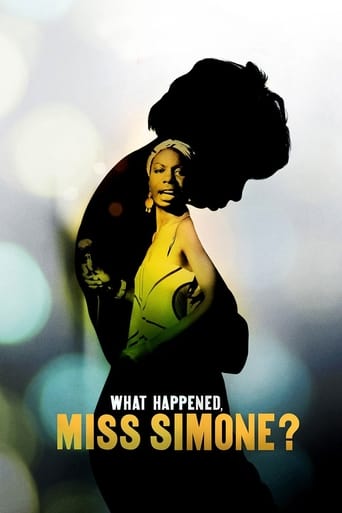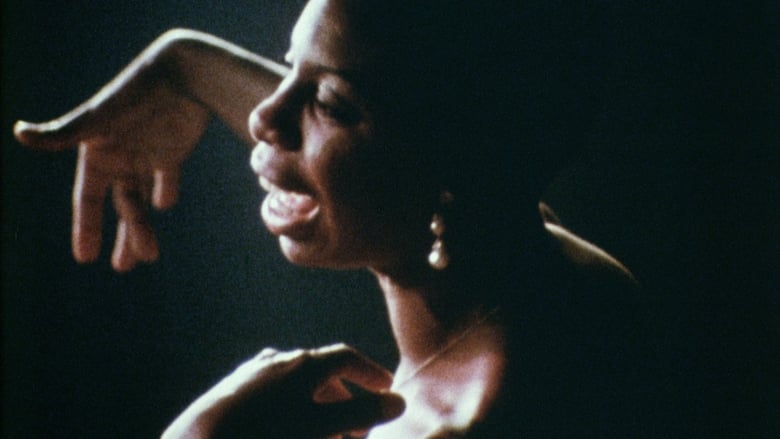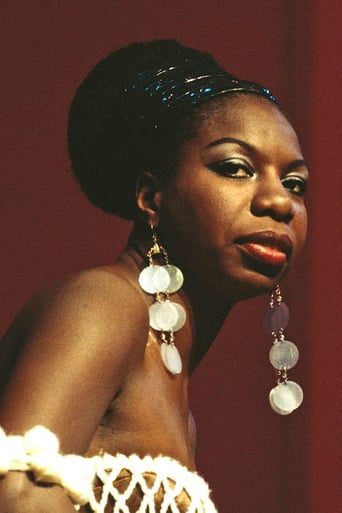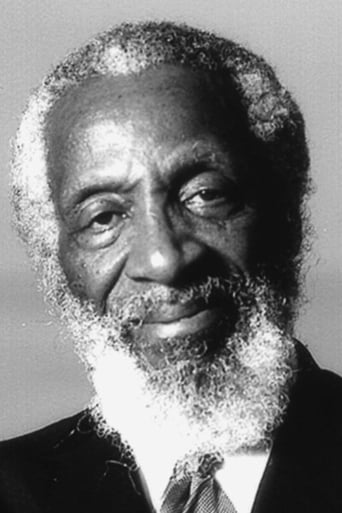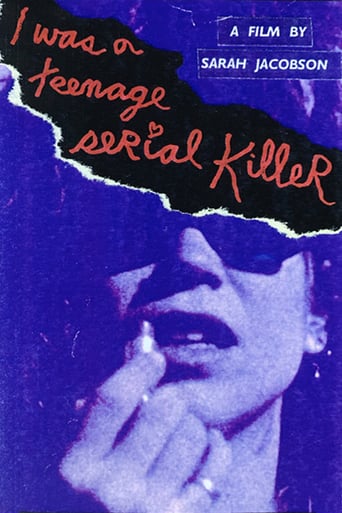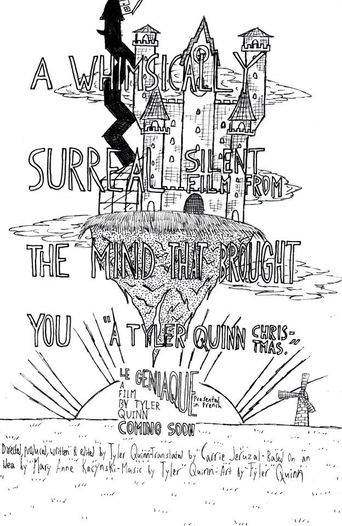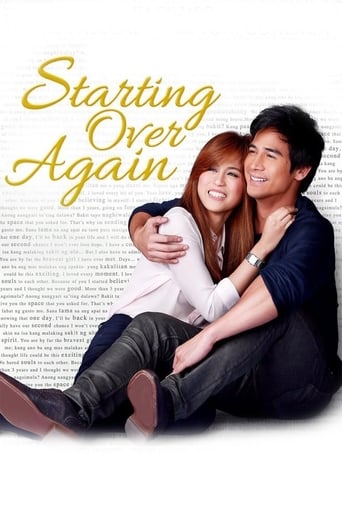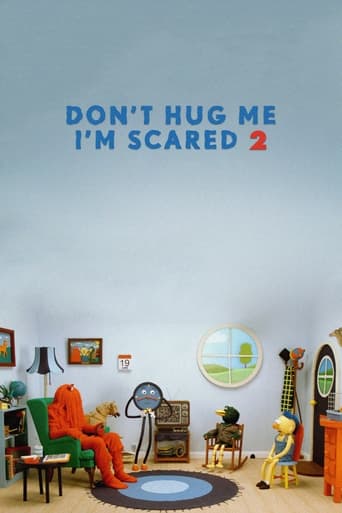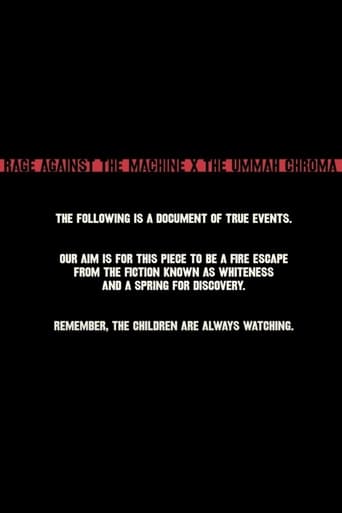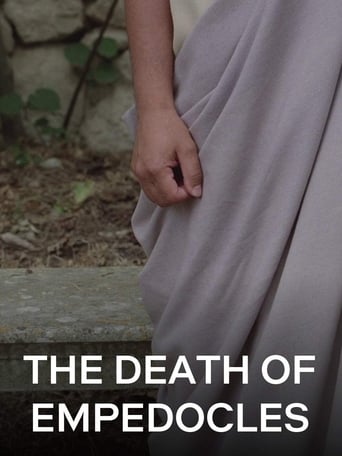What Happened, Miss Simone? (2015)
The film chronicles Nina Simone's journey from child piano prodigy to iconic musician and passionate activist, told in her own words.
Watch Trailer
Cast


Similar titles
Reviews
Yawn. Poorly Filmed Snooze Fest.
Fantastic!
The film creates a perfect balance between action and depth of basic needs, in the midst of an infertile atmosphere.
Let me be very fair here, this is not the best movie in my opinion. But, this movie is fun, it has purpose and is very enjoyable to watch.
Why wait till the end of the movie to finally suggest that the reason why Nina Simone was unhappy was because she was bipolar, then maybe we can follow through the entire movie knowing that we're just looking at a crazy woman! I'm confused is she the one to blame for the beatings she took from her husband, for living in a time of racism where it was not even permitted to discuss trauma, for being turned down to go to a school because she was African-American; only to be acknowledged after her death,for her political involvement with civil rights movement, which has always been considered taboo, for being poor, for living in fear of a lynching, for not being permitted to be a mother - just for living in fear! Hey! While you're at it, you can just write her out of the movie all together and just say this is how you become bipolar! This is what happens to women when they are given too much responsibility! We love that story! She can't take care of herself. As long as the men took care of the bills, she couldn't possibly understand the bills. Even in her final moments, she is not heard. It all falls on deaf ears Nina! They're not listening! They can't hear you! They gave you the pills so you could just keep playing! It's three strikes and you're out - African-American, woman, mental illness! I can't imagine a place anywhere and in anytime that a woman like this was not spotted on the street and cared for? Was that the state of mind during the civil rights movement? Can you answer me that question? You are telling me not one person, not a friend,family, or fan came to take care of her? I mean manic-depression has been around quite a long time! Centuries! There has always been people who have it and have been around to treat it. It didn't just happen in the last ten years! I'm sick of the big finale of bipolarism/mental illness! Why not do what has always been done when a writer/director doesn't know how to end a story - just staple a deuce ex machine to it and call it a day! Perfect rags to riches story, hey? Why even mention a mental illness? So those of us who suffer can say, well that's why we'll never be an important part of society! Or those of us who don't suffer as much can button it with, oh thank heavens she got help! Maybe a better ending might be triumphant? The husband is put in jail, finally justice served! By the way, since we are airing out the dirty laundry, what about the husband? What was his mental illness diagnosis? That he was a man and times were different? He gets a pass? The daughter? Anyone with the correct information knows that it runs in the family. How about tieing things up with a prompting of intolerance? Or don't women, African-American and those suffering with mental illness deserve some tolerance? And don't think I didn't miss that you are quick to label an abused woman as bipolar, which is why I asked the question at the beginning. Isn't this what the movie was about? Creating more intolerance! That is why they smacked the mental illness label onto Nina and the ending of the movie: so we could all feel like we were in the same company with the intolerant, nice and cosy. It is a mirror of our intolerance. It's just an easier explanation than and less taboo to just say she lost her fame because of bipolarism and easier to diagnose as she is a woman. Whatever, bravo to the director for an ignorant message! I loved seeing the original footage, but the the director should be cremated! Nina you're not alone. You were never alone. We women are all still dieing silently - African-American, or pathetically diagnosed with a mental illness - for all our tries.
This film is pure propaganda. Starting with the accusatory title that blames the victim, this film is the poster-child for the most offensive patriarchal drivel.Nina Simon was a powerful Black woman. Of course they had to make her look crazy. RACISM set the stage and PATRIARCHY literally kicked her in the gut and kept her down and working for the man until the day she died. The first 7 names listed as staring in this documentary are all men. Nina is listed as 14th. This film is not about Nina Simon. It is a propaganda smear of all those who want to keep the legacy of this genius marginal at best. Nina Simon literally had to run for her life (or safety at least) from an intensely abusive husband who punched her in the stomach when she was pregnant, beat her regularly, is quoted saying in the film that one of his beatings was so bad he "taped" her eye himself and never sought medical treatment, and Nina is quoted saying that he "tied me to the bed and rape me"; and who worked her like a slave with no understanding of her as a woman or as a human; and who when Nina fled from him, abandoned their daughter. And although Nina was beaten, raped, overworked, misunderstood, and clearly a frustrated genius trying to survive in a hateful world that was and still is terrified by her power as a Black person and as a woman, and who was not protected by, but rather further and severely abused and exploited by her husband—rather than being jailed for his crimes against Nina Simone—was the director's choice to use in the film to attest to her character. When Nina fled, her husband just left. He abandoned his daughter and yet the film manages to make Nina look like the abuser for fleeing, even though once she was secure in Liberia she sent for her daughter. It is also conspicuous that when she is recorded saying that he was completely impotent and never would touch her or make love to her the directors did not once use the pleading song Sugar in My Bowl in this film.Mostly white men and her abusive husband, and daughter are interviewed. Her daughter is clearly still trying to make sense of an intensely genius and complex mother, who was worked to death, who only became abusive toward her daughter after she was pushed to the brink and had fled for her life, and who came out of a complex, racist, misogynistic and hateful time. It follows suit that this film would be nominated for best doc by an academy that is exclusive and racist, further perpetuating the legacy of white patriarchal racism of keeping any powerful Black human—and in particular, a Black woman—outside its domain. Other than Nina's own words, the only other words that made even an inkling of sense in this film—and they made up only TWO SENTENCES—was by Malcolm X's daughter, Attallah Shabazz who says of Nina Simon: "She was African royalty. How does royalty stomp around in the mud and still do it with grace?"
"What Happened, Miss Simone?" is a documentary that premiered on Netflix on June 26, 2015. It's about the life and times of singer and civil rights activist Nina Simone.Using a vast array of archival footage and interviews with Miss Simone and those who knew her, the movie, Directed by Liz Garbus, paints an interesting picture of this singular talent. She started playing piano at four and performing in church at revivals, when she wanted to be the first black classical pianist to play professionally, music schools wouldn't take her - just because of the color of her skin. Nina went on to playing jazz in clubs and her unique style drew attention. She soon met her husband and manager Andrew Stroud - from there her life was filled with great heights and shattering lows. Nina's diary entries talked about spousal abuse, how she suffered from manic depression and how with her constant touring took a tole on her, saying she was being "worked like a dog" by her husband.Things changed in 1963 when four little girls where killed in a racially instigated church bombing in Alabama. Nina wrote "Mississippi Goddamn" as a response and from then dedicated herself to civil rights for black Americans. This hurt her career commercially - a Harlem concert in 1969 with her singing "are you ready to smash white things, to kill if you have to" is very telling of the scorn and anger she felt against discrimination she had witnessed her whole life, as well as her passion for change.The movie is a candid and honest telling of Nina's life, and in a revealing scene her daughter Lisa reveals that she was abused by her mother during their time living in Africa.Nina Simone is a complex and fascinating woman, and this movie is a very revealing look at her life. It has enough interesting concert and interview footage from the fifties to the eighties to satiate returning fans, as well as give viewers new to her music the definitive look at the life of the "High Priestess of Soul"
"What Happened, Miss Simone?" pulls you right into the life of the little girl, Eunice Waymon, who becomes Nina Simone. Through skillful use of archival audio and film, interviews and other contextual materials, and clearly with a genuine appreciation and love for the subject, Liz Garbus has found the thread that strings all of this material together; the genius and passion of a driven artist. Hearing the familiar songs with their stories, and learning about Nina's life journey, all somehow fits powerfully with contemporary racial issues in the US. This film can serve to educate, and inspire, as we continue to navigate the tortuous path to justice. Thank you for making this film, and bringing Nina Simone to even more people.

